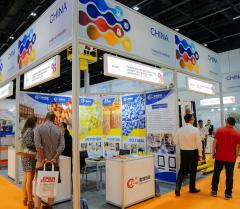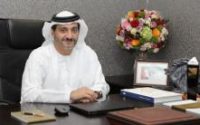China Surges Into Materials Handling Middle East As Sector Readies For ‘Century Of Prosperity’
Chinese expertise across the logistics eco-chain will be forefront at this year’s Materials Handling Middle East, the region’s dedicated warehousing, intralogistics and supply chain solutions show, which runs from September 3-5 and comes in the wake of game-changing UAE-China trade accords.
China, already the UAE’s second largest trading partner with about 6,000 Chinese companies operating in the Emirates, will have a dedicated pavilion featuring around 30 of the country’s biggest names at the Dubai World Trade Centre (DWTC). Chinese heavyweights include NobleLift, Kaixun, Banyitong Science, and Phoebese Industrial Co., among others.
Chinese involvement in Materials Handling Middle East follows the UAE and China recently signing $3.4 billion worth of new Belt and Road deals, which are expected to boost an existing $53 billion worth of bilateral trade to $70 billion next year.
The deals include Chinese plans for a 5.57 million sqm storage and re-export hub in Jebel Ali to trans-ship its goods to the world and UAE plans for a $1 billion ‘Vegetable Basket’ project that will import, process, pack and export agricultural, marine and animal products through the new Silk Road under a UAE-China century of prosperity roadmap.
“The initiative opens up unprecedented partnership opportunities for region-wide logistics players as the UAE becomes an integral part of China’s Belt and Road initiative, combining a land economic belt and a maritime silk road linking China with South-East, South and Central Asia, the Arabian Gulf, North Africa and Europe,” explained Jasmeet Bakshi, Group Director of Other Services at Messe Frankfurt Middle East, organiser of Materials Handling Middle East.
“It will also bring the advantages of the UAE’s locational facilities into sharp global focus. This year’s Materials Handling Middle East is transformational on a number of levels, specifically its evolution into a futuristic showcase of robotics and automation.
“In an era of unfolding trading patterns as world manufacturing and commerce progresses into the 4th industrial revolution era, the wider logistics eco-chain is central to attaining new era demands for increased operational and cost efficiency, production capacity growth, speedy customer responsiveness and heightened competitiveness. This makes the show essential for all involved in the increasingly elastic logistics sector.”
Materials Handling Middle East will focus on multiple dynamic sectors including logistics and supply chain, retail, FMCG, automotive, oil and gas and pharmaceuticals, with all segments covered under the recent slew of 16 UAE-China trade accords.
Meanwhile, the two-day Supply Chain & Logistics Forum which runs September 3 and 4, will examine the next supply chain era and drill down into whether the Middle East is ready for it.
“The digital transformation and automation of the supply chain and logistics industry, as well as the redrawing of world trade patterns, will be part of the discussion,” explained Bakshi. “The new Chinese equation will be an integral part of these deliberations with a view of helping the industry better understand how to reap the rewards of trade deals which advance global opportunities.”
Materials Handling Middle East, which has attracted several national pavilions and more than 120 exhibiting companies from 20-plus countries, runs from 3-5 September at DWTC. For more information, visit: www.materialshandlingme.com.








